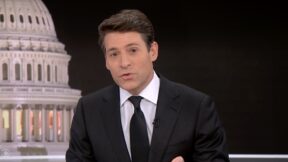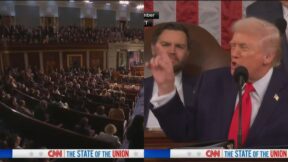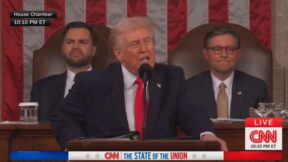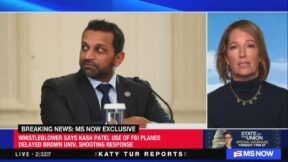Yale: Officer Who Pulled Gun on Charles Blow’s Son Cleared of Wrongdoing
 An internal investigation by the Yale Police Department concluded that the officers involved in the arrest of the black son of a New York Times columnist were in compliance of department policy.
An internal investigation by the Yale Police Department concluded that the officers involved in the arrest of the black son of a New York Times columnist were in compliance of department policy.
The arrest of Yale University junior Tajh Blow, who had a gun pulled on him by YPD as he exited a library for matching the description of a burglary suspect, sparked the outrage of his father Charles M. Blow. “If indeed my son matched the description of a suspect, I would have had no problem with him being questioned appropriately,” he wrote. “The stop is not the problem; the method of the stop is the problem.”
According to the the internal report, released yesterday by Yale University, Tajh was released within six minutes, and the actual suspect — who matched Tajh’s description — was arrested merely 200 feet away. The report, however, cleared the officer of any wrongdoing and said that he was in compliance with department policy — even the part where he pulled a gun on Tajh:
Among its findings, the investigation concluded that the officer drew his firearm in the “low ready” position, with his finger off the trigger at all times, and put his weapon back in its holster in a matter of seconds. The officer did not violate any Yale Police regulations regarding patrol procedures or the use of force, the report stated.
At the same time, there were “deficiencies” in the officer’s training:
The investigation did identify three policy and training deficiencies of the Yale Police Department: the definitions of “low ready” positioning of a firearm and “pointing a firearm,” and the policy regarding the activation of a body video camera.
Yale announced that in light of the arrest, which quickly went national after Blow went on a full media blitz about the event, they would convene an independent panel to review the Yale Police Department’s internal policies. “The independent panel’s report, including any recommendations for changes in Yale Police policies or procedures resulting from the panel’s work, will be made public, ” they wrote.
[Yale News]
[Image via Shutterstock]
—
>> Follow Tina Nguyen (@Tina_Nguyen) on Twitter
New: The Mediaite One-Sheet "Newsletter of Newsletters"
Your daily summary and analysis of what the many, many media newsletters are saying and reporting. Subscribe now!






Comments
↓ Scroll down for comments ↓